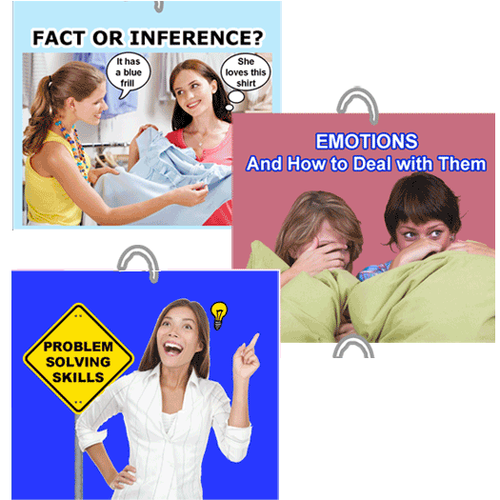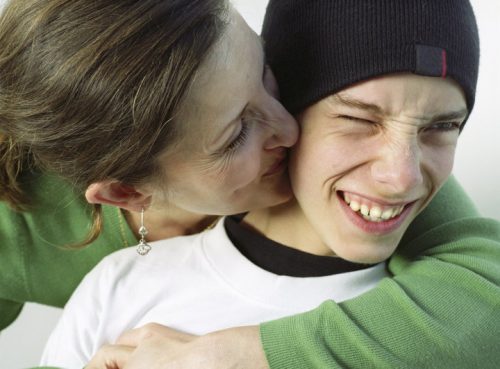
Reaching the phases of adolescence is never easy for a regular teenager, because of the unfamiliarity of undergoing changes inside and outside of the body. Although it is a part of growing up, it can be a challenging stage, especially for an adolescent who has autism.
Rejection And Bullying
Autism spectrum disorder is the reason for the impairments of social abilities and unorthodox actions like repetitive behavior. These may also be reasons for outside forces like social group or peers to reject or even bully persons with the illness. “By definition, bullying behavior implies an imbalance of power. The bully perceives that they are better, stronger, more socially adept, and higher on the social ladder.” Paul Schwartzman, LMHC, MS, DAPA explains.
Rejection or bullying is often accompanied by social aggression towards the doer, for the negligence or lack of knowledge about the person with ASD.

Inevitable Changes
“There is an ongoing debate about whether or not teenagerhood is a cultural phenomenon or whether it is a description of a transformation that occurs mentally and emotionally during adolescence.” Richard Zwolinski, LMHC explains. Dealing with autism in the adolescence stage is hard, especially to parents with little knowledge on how to teach their son about the physical changes happening in the body, such as physical urges, and emotional desire. This is the time of knowing oneself and understanding life. Though these things are natural for us, it may be crucial to persons who have autism. It is the significant changes in the body that happens in puberty stage. These affect factors such as growth, maturation of the body, emotional and social shifts, and alterations in brain activity.
A person with autism lacks understanding and the ability to learn about these changes in the body, which causes an autistic person to panic and have inappropriate behaviors that result in them acting without knowing the consequences of their actions whether good or bad.
Every parent of an adolescent with autism must have insights of what’s going on in their child’s mind when undergoing these life-changing experiences. They must be creative on how to deal with them in a way that they will have a grasp of what’s really happening in their body and their surroundings.
Physical Changes
Explaining the physical effects of growing up early on using techniques like visuals or cartoon representations will help your kid realize that body changes are healthy and are being experienced by everyone in the process of growth.
Sensitivity
Persons with ASD have fragile personalities. Refraining from joking about his incompetency will help him compensate for the things he can’t do. Instead, it would be better if you help him reach his full potential on things he is interested in doing. Like if they are more interested in arts, help them flourish in that area.
Easily Feeling Discouraged
Teenagers with autism (see relevant article in momjunction.com) can quickly get discouraged and feel unwanted. Praises are the best encourager. Praising him especially for the little things that he accomplishes or skills he newly acquires can push him to do better and excel. Practicing a reward system for excellent behavior such as giving something he will love or appreciate will inspire him more.
Frustrations
Being positively clear when teaching your kid with autism would tremendously help him learn better and quicker. This is especially important when you talk with him about sensitive issues or awkward things such as sexual topics, relationship and family problems, and issues that mainly includes a change of environment. Many studies have been made and showed that an ASD person could not cope up well with change. Speaking openly and letting him understand the situation creatively and patiently will gradually lessen the stress and frustrations he feels. Licensed clinical psychologist John Mayer, Ph.D. used to say, “Negative thoughts are just a part of life, but they don’t have to consume you. Instead of trying to ignore those thoughts altogether, try countering them with positive statements.”

Fears Of Public Places
“Fear, or getting scared, is an emotion that’s part of our biology as human beings, just like other emotions such as sadness, joy and anger. It serves a purpose that’s crucial to our ability to survive,” –Steve Orma, PsyD
Teach him socialization skills in a way that he will appreciate, like how fun it is to be with other teenagers like him, or how to be cool and be a gentleman when around girls because girls like it when they are treated with gentleness.
Taking him up for daily activities like going to recreational places, eating at restaurants and having extracurricular activities will help him get familiar with public areas. This may decrease his triggers when having new encounters. You can also teach him techniques when something unusual comes up that he knows will trigger his tantrums or fears or repetitive behaviors. Talking with him about awkward life experiences and being just overly casual and funny about it will help him understand that these things in life are entirely usual as we go on living.
Persons with this disorder suffer a lot and helping them to get through this phase in their life will benefit them as they go through living as a productive adult.